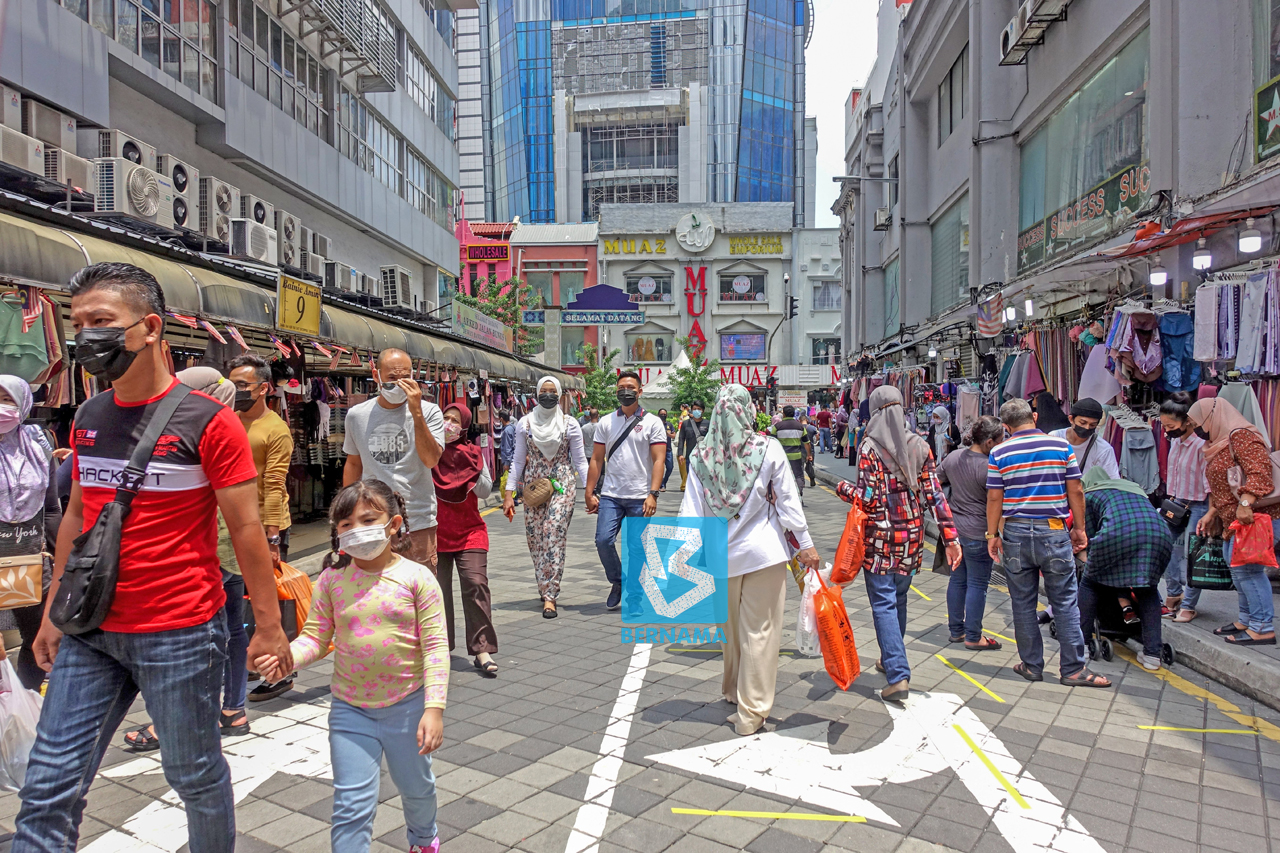
Muhyiddin assured that the government would continue adopting the whole-of-nation approach to ensure that its policies are clear and conducive for sustainable economic development. — Bernama photo
KUALA LUMPUR (July 22): Tan Sri Muhyiddin Yassin said it is time for industries and businesses to prepare for the socio-economic transition post-Covid-19 as the government is ramping up the rollout of vaccination programmes, as well as delivering socio-economic policies and recovery packages to mitigate the impact of the pandemic.
Speaking at the virtual launch of the International Greentech and Eco Products Exhibition and Conference Malaysia (IGEM) 2021, the Prime Minister said the unprecedented and rapid changes due to the pandemic have indeed forced the country to continuously realign the sustainability aspect that has impacted many parts of the peoples’ lives.
On this, Muhyiddin gave his assurance that the government would continue adopting the whole-of-nation approach to ensure that its policies are clear and conducive for sustainable economic development.
“It is crucial that we stay agile by engaging all industry players and stakeholders to better deliver planetary health in the long run.
“The pandemic has given a fresh impetus for all of us to play a role in sustainability agenda,” he said.
Muhyiddin said as a signatory to the United Nations’ 2030 Agenda for Sustainable Development, Malaysia is committed to delivering the Sustainable Development Goals (SDGs) in line with the National Shared Prosperity Vision 2030, as well as to fulfil its obligations under the UN Framework Convention on Climate Change and the Paris Agreement.
Thus far, he said Malaysia has established a Malaysian Climate Change Action Council (MyCAC) in April 2021, allocated RM35 million under the Low Carbon Cities Catalyst Grant (GeRAK) for grassroots initiatives, as well as issuing the world’s first Sovereign US Dollar Sustainability Sukuk to fund eligible social and green projects in line with SDGs and Shared Prosperity Vision 2030.
Muhyiddin said the National Green Technology Policy introduced in 2009 also marked Malaysia’s eco-shift from industrial national development to adopting a more sustainable economic perspective and recognising the potential of green technology as one of the pillars to accelerate the economy.
Among the green agenda initiatives include the Green Technology Financing Scheme which resulted in RM5.6 billion being channelled to 431 green companies and ventures, while the MyHijau Mark and Directory programme prompted businesses, consumers and agencies to make sustainable purchase decisions by creating a catalogue of certified green products and services.
“In 2020, the Green Investment Tax Allowances (GITA) saw a total of 635 green technology projects approved for the purchase of green technology assets, generating investments of RM2.389 billion,” he said.
On IGEM 2021, the Prime Minister said the six-month event which started on July 1 is an important catalyst in charting the country’s way forward in pursuing economic and social wellbeing post-Covid-19 with the support and participation from the industry and public.
He noted that since the first IGEM in 2010, the annual event has attracted over half a million delegates, dignitaries, organisations and companies from more than 80 countries and generated over RM30 billion in business leads.
“IGEM also served as a key medium for forging international collaborations as well as meaningful dialogues that have elevated this country’s green credentials,” the prime minister said.
Themed ‘Redefining Sustainability’, he said IGEM 2021 focuses on climate change and green technology amid addressing the impacts of the Covid-19 pandemic and provides an opportunity for government institutions to reassess its strategies to revive economies, preserve the environment and bringing social stability to climate challenges.
“With the emergence of green industry that requires new innovations, products and services to meet consumers’ demand, the theme also translates into new opportunities and reaching out to the untapped markets for businesses,” Muhyiddin added. – Bernama
